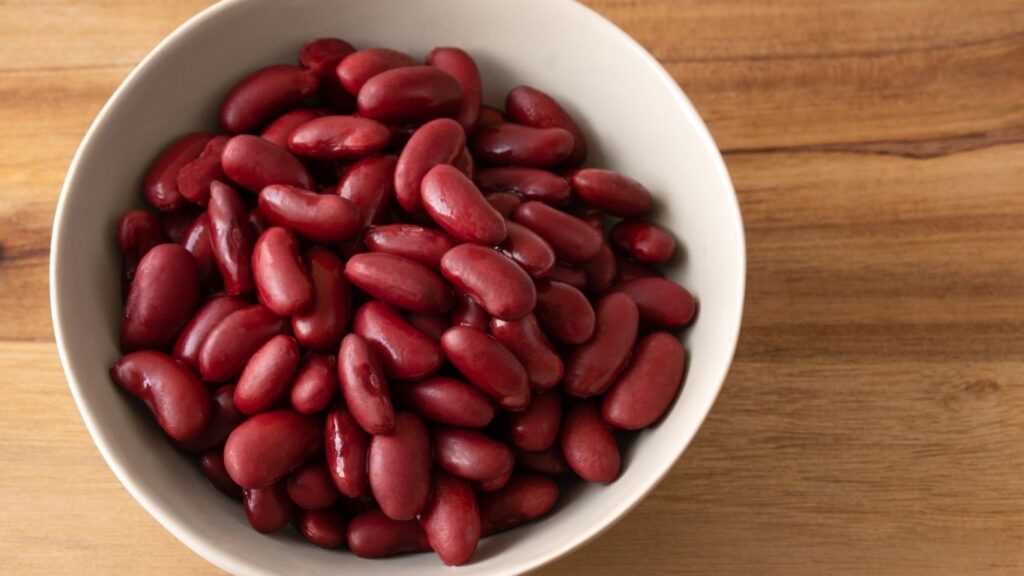Diabetes is a global health issue affecting millions, characterized by chronic high blood sugar levels due to the body’s inability to produce or effectively use insulin. According to the World Health Organization, the prevalence of diabetes has been steadily increasing over the past few decades, especially in middle and low-income countries. Managing diabetes often involves lifestyle changes, particularly in diet, which plays a crucial role in controlling blood glucose levels. A diet rich in nutrients, low in sugar and fat, and balanced to support overall health is vital for diabetics.
Kidney beans emerge as a superfood in this context, offering significant benefits for those managing diabetes. Rich in fiber and protein while having a low glycemic index, kidney beans help moderate blood sugar spikes and provide sustained energy. Their nutritional profile supports not only blood sugar management but also contributes to heart health, making them an excellent dietary choice for diabetics.
The Role of Kidney Beans in Managing Diabetes
Nutritional Profile of Kidney Beans
Kidney beans are a powerhouse of nutrients, making them an excellent dietary choice for individuals managing diabetes. They are notably rich in fiber and protein, both essential for blood sugar control. A single cup of cooked kidney beans provides about 13 grams of dietary fiber and 15 grams of protein. This high fiber content helps slow the absorption of sugar into the bloodstream, preventing sudden spikes in blood glucose levels.
The low glycemic index (GI) of kidney beans, typically ranging around 24, means they have a minimal impact on blood sugar levels post-consumption. Foods with a low GI are digested and absorbed slowly, providing a gradual rise in blood sugar and insulin levels. This characteristic is particularly beneficial for diabetics, as it aids in maintaining stable blood sugar levels throughout the day.
Also kidney beans are a good source of magnesium, a mineral that plays a pivotal role in more than 300 biochemical reactions in the body, including glucose metabolism. Research suggests that magnesium can help improve insulin sensitivity, making it easier for the body to manage blood sugar levels. The inclusion of kidney beans in a diabetic diet can thus support overall metabolic health and aid in the prevention of diabetes-related complications.

Impact of Low Glycemic Index Foods
The glycemic index (GI) is a scale that ranks carbohydrate-containing foods by how much they raise blood glucose levels compared to a standard food, typically glucose or white bread. This index is crucial for diabetes management as it helps patients understand which foods are likely to cause significant blood sugar spikes. Foods are classified as low, medium, or high GI, with low GI foods having a value of 55 or less.
Low GI foods like kidney beans are beneficial for diabetics because they are digested and absorbed slowly, resulting in a gradual increase in blood sugar and insulin levels rather than sharp spikes. This slow digestion process helps maintain stable blood glucose levels, reducing the risk of hyperglycemia (high blood sugar) and providing a sustained energy supply.
In contrast, high GI foods, such as white bread or puffed rice, are processed quickly by the body, leading to rapid spikes in blood sugar and insulin levels. These spikes can be particularly harmful for diabetics, as they require the body to manage a sudden and large demand for insulin, which can exacerbate insulin resistance and impair blood sugar control. By opting for low GI foods like kidney beans, diabetics can better manage their condition and maintain overall health.
The Benefits of Fiber in Diabetes Management
Dietary fiber plays a pivotal role in regulating blood sugar levels, a process crucial for individuals managing diabetes. Fiber, especially soluble fiber, slows the digestion and absorption of carbohydrates, preventing rapid spikes in blood glucose and insulin levels. This steadying effect on blood sugar contributes to long-term metabolic health and can help in managing diabetes more effectively.
Kidney beans are particularly rich in soluble fiber, which offers specific benefits beyond general blood sugar management. Soluble fiber forms a gel-like substance in the gut, which slows digestion and the rate at which carbohydrates are broken down and absorbed. This type of fiber has also been shown to lower blood cholesterol levels, another important factor for diabetics, who are at increased risk for cardiovascular diseases.

Including high-fiber foods like kidney beans into a diabetic diet can be both simple and delicious. Start by adding kidney beans to salads, soups, and stews to boost fiber content. Another approach is to use mashed kidney beans as a base for dips and spreads or to replace some of the meat in dishes like chili and tacos with these beans. Gradually increasing fiber intake can help the digestive system adjust without discomfort, promoting a healthier, more balanced diet.
Kidney Beans and Overall Health in Diabetes
Kidney beans are a versatile and nutritious component of a balanced diet, offering a rich array of nutrients essential for overall health. They are particularly beneficial for individuals managing diabetes, as their high fiber and protein content supports blood sugar control. Additionally, kidney beans are laden with vital micronutrients such as potassium and iron, which play critical roles in a diabetic diet.
Potassium helps regulate heart rate and blood pressure, and its adequate intake is essential for cardiovascular health. Diabetics, who are at an increased risk for cardiovascular diseases, can benefit significantly from the potassium in kidney beans. Iron, another important micronutrient found in kidney beans, is crucial for oxygen transport in the blood and overall energy levels, helping combat fatigue often associated with diabetes.
Moreover, the relationship between heart health and diabetes management cannot be overstated. The fiber in kidney beans not only aids in blood sugar regulation but also helps lower cholesterol levels, reducing the risk of heart disease. By incorporating kidney beans into their diet, diabetics can enjoy both improved glycemic control and a reduction in cardiovascular risks, promoting a healthier heart and a more stable metabolic state.
Practical Ways to Incorporate Kidney Beans in Diabetic Diets
Kidney beans are incredibly versatile in recipes, from hearty chilis and stews to refreshing salads. For a simple meal, try a kidney bean salad with chopped veggies, olive oil, and vinegar, or incorporate them into a vegetable stir-fry for added protein.
To preserve the nutritional benefits of kidney beans, soak dried beans overnight to reduce cooking time and enhance digestibility. Cook them gently until tender to retain their structure and nutrients. Avoid overcooking, as this can lead to nutrient loss.

For those looking to replace high glycemic index foods, kidney beans are an excellent substitute. Swap out white rice in burritos or casseroles with kidney beans, or use them as a base in place of mashed potatoes for a nutrient-rich side dish. These substitutions not only enhance the fiber content of your meals but also help in maintaining more stable blood sugar levels.
Conclusion
Kidney beans are an invaluable addition to the diabetic diet, offering multiple health benefits that extend beyond simple blood sugar management. Their low glycemic index, high fiber content, and essential nutrients like potassium and magnesium make them particularly effective in stabilizing glucose levels and enhancing overall metabolic health. Incorporating kidney beans into meals can lead to better glycemic control, improved cardiovascular health, and increased dietary satisfaction. By understanding and utilizing the nutritional power of kidney beans, individuals with diabetes can enjoy a varied, flavorful diet while proactively managing their condition.
Also read: Top 5 Superfoods to Add Decades to Your Life: Eat Your Way to a Longer Life!
